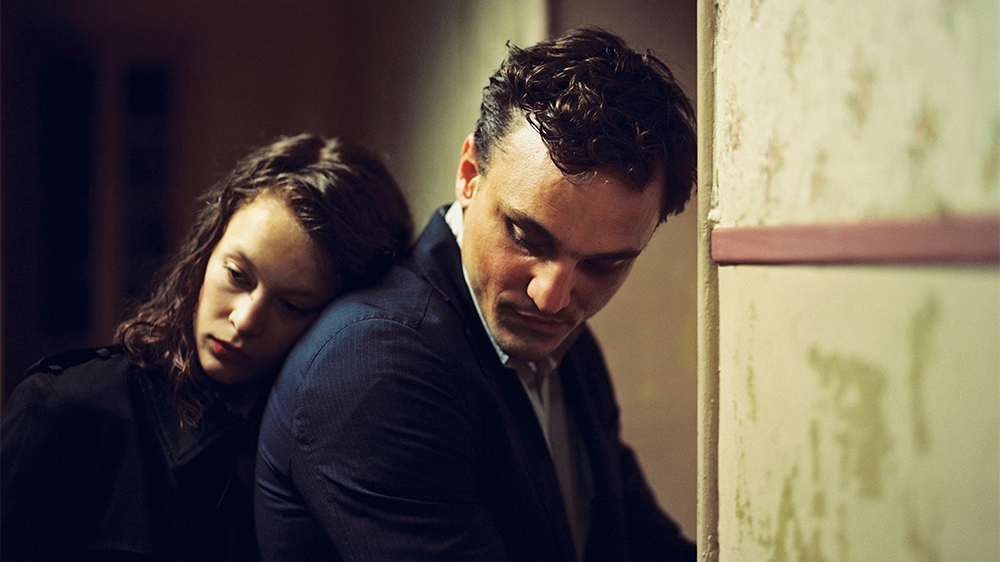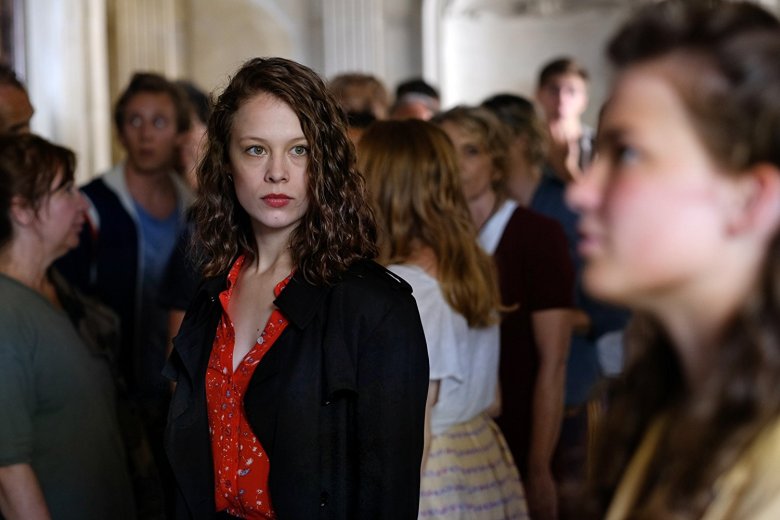TRANSIT
 Scott Pfeiffer
Scott Pfeiffer  Friday, March 15, 2019 at 09:44AM
Friday, March 15, 2019 at 09:44AM Christian Petzold's TRANSIT (Germany, 2018)

Christian Petzold's haunting Transit resounds with all the fears of the 20th century, then lays the traumas of the first 20 years of this one on top of that. Based on Anna Seghers's 1944 novel Transit Visa, it's a story about a German refugee, Georg (a haunted, hunted Franz Rogowski), stuck in Marseille as a fascist takeover spreads his way across France. The twist is that Petzold has set Seghers' story in the present day. The stranded refugees wait for transit visas, and wait...and wait...and wait. That's right: I'm not going to not invoke Casablanca just because everyone else has. It's unavoidable, not least because of the way this movie melds the personal and the political. The other unavoidable, and highly appropriate, reference is, of course, Kafka.
Georg gets involved with Marie (Paula Beer), who appears and vanishes throughout the movie, searching for her estranged husband, a leftist writer of note. (In a slightly surreal way, this film is all about being lost and being found.) Georg knows, but Marie does not, that her husband is dead. He also gets to know Marie's pediatrician lover (Godehard Giese). What's more, in a side-plot he befriends the deaf/dumb wife (Maryam Zaree) of a comrade who died while they were on the run from occupied Paris, becoming a father figure to her young son (Lilien Batman).

As in Petzold's Phoenix, the story revolves around the idea of appropriating the identity of a dead person: by impersonating the late writer, Georg secures two visas and ship's passage to Mexico.
The idea of fascism sweeping over our modern world spoke to me: I feel it every time I open the newspaper. Speaking to the current refugee crisis, this movie can make Europeans, or even Westerners more broadly, ask, what if it were us? As the film's narrator puts it, "The terrible thing is, they don't see you. You don't exist in their world."
While Transit captured my imagination, it didn't quite cast a spell over me like some of Petzold's earlier efforts, like Barbara and Phoenix. Petzold is known for his thoughtful deployment of genre to critique the shame of Germany's past. Here, he's chosen to work in the thriller mode, and while he admirably declines to gin things up, his thriller could use a few more thrills. The atmosphere in Cassis is perhaps too sunny and relaxed to rivet, and there's rather too much about the bureaucracy of papers and documents: visas, transits, ship's passages, etc. Petzold's storytelling, and his narrator, are so soft-spoken and understated as to be almost under-heated.

Still, don't let that dissuade you: this is a film to see. It may reveal itself as a key work by one of our foremost auteurs, and it certainly represents a distillation of his themes at a newly potent level. In fact, it's precisely the cool, calm, matter-of-fact way in which the narrator relates news like, "That morning the cleansing had begun," or "Fear and chaos will soon reign here," that makes it so chilling. The storytelling practices a rather fascinating bit of elision and slight of hand, as well—on the part of both the narrator and Petzold. It raises the question of how much of any of this is just a figment of one of the multiple storytellers' imagination. Notice how the movie is careful not to show us Marie's face the first time our rather unheroic hero visits the pediatrician's apartment.
A song by one of my favorite bands appears from nowhere over the end credits; it lifted me right up, transporting me to my youth. The music sent me out of the film happily lost in a day before all this fascism (oh sorry, "populism") was on the rise, here and abroad, and getting closer every day.
Like all of Petzold's work, this movie is about memory: memory, and forgetting. You can forget the past as a nation, and as an individual. Of course, that means you're doomed to repeat it. Transit makes that all too painfully clear.
(101 min, DCP Digital). TRANSIT plays this week at the Music Box Theatre. Check venue website for showtimes.
Rating: ***1/2
Key to ratings:
***** (essential viewing)
**** (excellent)
*** (worth a look)
** (forgettable)
* (rubbish!!)


Reader Comments